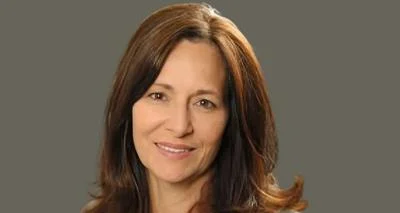Carl J. Wenning, Communications Manager, McLean County Republicans | Carl Wenning
Carl J. Wenning, Communications Manager, McLean County Republicans | Carl Wenning
With the close of 2023, Illinois’ scholarship tax credit program for school children ended. The Invest in Kids program was terminated by the Democrat-controlled Illinois General Assembly, which failed to renew the program during the fall veto session. The Chicago Teachers Union called the end of the program a “historic win for public education.” The Catholic Conference of Illinois blasted lawmakers, citing its essential unfairness.
Is this a case of “Choice for me, but not for thee?” It certainly seems so. Many top public school officials with very generous salaries have chosen to have their children educated in private, magnet, and parochial schools – fleeing the subpar education of Illinois public schools. The record is replete with such examples. Unfortunately, the power of the wallet determines the quality of education for most of Illinois’ children today.
The Illinois Policy Institute recently pointed out how the literacy rate in Illinois has reached new lows, with some counties in Illinois having an illiteracy rate of as high as 35% and most around 15%. A considerable fraction of Illinois citizens can neither read nor write effectively and are functionally illiterate. They lack the basic knowledge and skills required to operate in a modern society. This indicates that our public schools are failing increasing numbers of our children yearly.
In another of my op-eds (Our Public Schools), I mentioned several reasons why Illinois’ public schools are failing. I gave as the reason the supplanting of educational essentials with multiculturalism, diversity, equity, inclusion, social and emotional learning, critical race theory, explicit sex education, esteem education, and “gender-affirming” activities. Including this content comes at a cost to history, economics, civics, sociology, geography, English language arts, science, and math. Including this woke content is central to the problem of public schools failing our children.
This supplanting is due in large part to a desire by many progressive educators, administrators, and school boards to indoctrinate public school children. Unfortunately, social studies has seemingly been replaced by “socialist studies.” That is, students are being indoctrinated with socialist values that are sympathetic to the politically progressive point of view. Consider the following emphases commonly found in public school classrooms:
Equal outcomes are promoted over equal opportunity. Socialists typically support reducing or eliminating economic inequalities among various classes or groups in society. This involves implementing policies like progressive taxation, wealth redistribution, and social safety nets to promote a more even distribution of resources.
Collective ownership is promoted over private ownership. Socialists frequently advocate for the collective or public ownership of production assets, including factories, land, and natural resources. This stands in contrast to capitalist systems, where private individuals or corporations typically own and control these resources.
Diversity, equity, and inclusion are promoted over meritocracy. Social justice warriors frequently highlight their commitment to advancing their views by addressing and remedying problems associated with perceived discrimination, inequality, and injustice. This encompasses tackling issues related to race, gender, wealth distribution, and various forms of so-called social oppression.
Emphasis is placed on “what your country can do for you rather than what you can do for your country.” This is a direct reversal of Democrat President John Kennedy’s statement, “Ask not what your country can do for you but what you can do for your country.” Socialists typically endorse delivering vital services like healthcare, education, and housing as public goods rather than commodities driven by market forces. The objective is to guarantee universal access to fundamental necessities, irrespective of individuals’ economic status.
Government control is emphasized over individual or private control. Certain socialist traditions underscore the significance of democratic decision-making, extending beyond the political realm to include the workplace. This could entail promoting worker cooperatives and encouraging increased involvement of individuals affected by decision-making processes.
Globalism is emphasized over patriotism. Socialists affirm their dedication to international solidarity and collaboration, aiming to confront global challenges such as poverty, exploitation, and imperialism. This frequently entails critiquing imperialism and advocating for a more fair and equitable global order.
Some of my readers might be askance at these claims, believing that this is not even possible within the context of public education. I assure you, dear reader, that it is not only possible but also happening under your very noses.
How does school indoctrination work?
Indoctrination is not always apparent to the untrained outsider. It can be as subtle as it is pernicious. It might not even be part of the official school curriculum. Some teachers can and often do go far afield when it comes to addressing specified curricula in the areas of social studies (history, geography, political science, economics, sociology, psychology, and anthropology) and humanities (visual arts, drama, music, literature, religion, and philosophy).
Though science and math are not as prone to “revisionist” approaches to teaching, the potential exists. It is more likely to occur with elementary and middle school children because (1) the content of the curriculum in these areas is less clearly specified, (2) curricular resources can be used with less critical students, and (3) youth are more readily influenced by social justice warriors.
I recently consulted with several substitute teachers in McLean County public school districts. They let me in on some of the things they have experienced moving from classroom to classroom in the recent past. Consider the following:
For instance, social warrior teachers use specific anchor texts such as Art of Protest: Creating, Discovering, and Activating Art for Your Revolution by De Nichols as the basis of their units. They teach spelling, grammar, and art with the intention of creating political activists. The cumulation of their activity might be works of art reflecting protests that are then hung in her classroom. For example, one collage was created by a student depicted images of police beating black men. Another was about LGBTQ+ rights.
School Boards can honestly say something is not part of the district’s curriculum, but social warrior teachers will go off-curriculum. Classroom libraries are created by these teachers using their own book choices. The books in classroom libraries are not “regulated,” inventoried, or approved by schools or school boards. Some teachers will “showcase” certain books from their classroom library. One example observed was having Antiracist Baby by Kendi, Small, et al. propped up on the ledge of the whiteboard.
Teachers are given the freedom to decorate their classrooms however they want, which is pretty much as it should be – within reason. Still, substitute teachers have reported a classroom with Black Lives Matter and similar painted on the wall and a classroom decorated in all rainbow colors with obvious LGBTQ+ overtones.
A culture war is occurring in our public school classrooms, and many parents are unaware of this. Our nation is being radically transformed by economic, political, and cultural forces being unleashed by the radical Left. Starting with our youth, social culture warriors are attacking the legacy of America’s founders, great works of Western Culture, and even children’s books and toys that don’t fit their dystopian vision for the future.
Many parents have opted out of this cultural mess by choosing to homeschool their children and form small communities of like-minded individuals. Others have attempted to take back their schools by confronting school boards, administrators, and teachers. Whatever the approach, we must all be aware of the culture war that’s taking place around us. If only we could convince one other person of the worthiness of our cause, we would win not only battles but the culture war itself.






 Alerts Sign-up
Alerts Sign-up